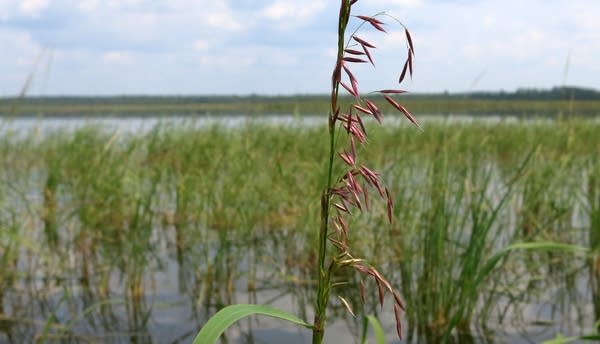Iron Range legislators, Dayton reach compromise over sulfate standards for wild rice

A stalk of developing wild rice stands in Big Rice Lake, a 3,000 acre lake south of Remer, Minn. on Aug. 5, 2014.
John Enger / MPR News
Go Deeper.
Create an account or log in to save stories.
Like this?
Thanks for liking this story! We have added it to a list of your favorite stories.


